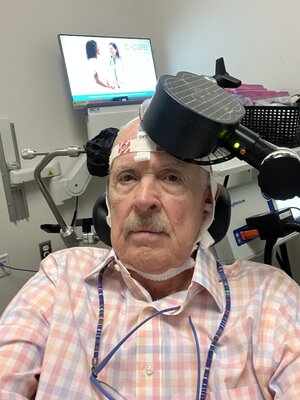New here. I just finished 10 days of TMS at UCLA, and I think it helped a little. My tinnitus is not as loud, and it changes throughout the day. The treatment was expensive, and I was told that about half of their patients report some improvement.
I just noticed that my tinnitus seemed to get louder after working on an orchestra score using headphones. Is it common for tinnitus to worsen after exposure to loud music or noise?
I just noticed that my tinnitus seemed to get louder after working on an orchestra score using headphones. Is it common for tinnitus to worsen after exposure to loud music or noise?


 Member
Member